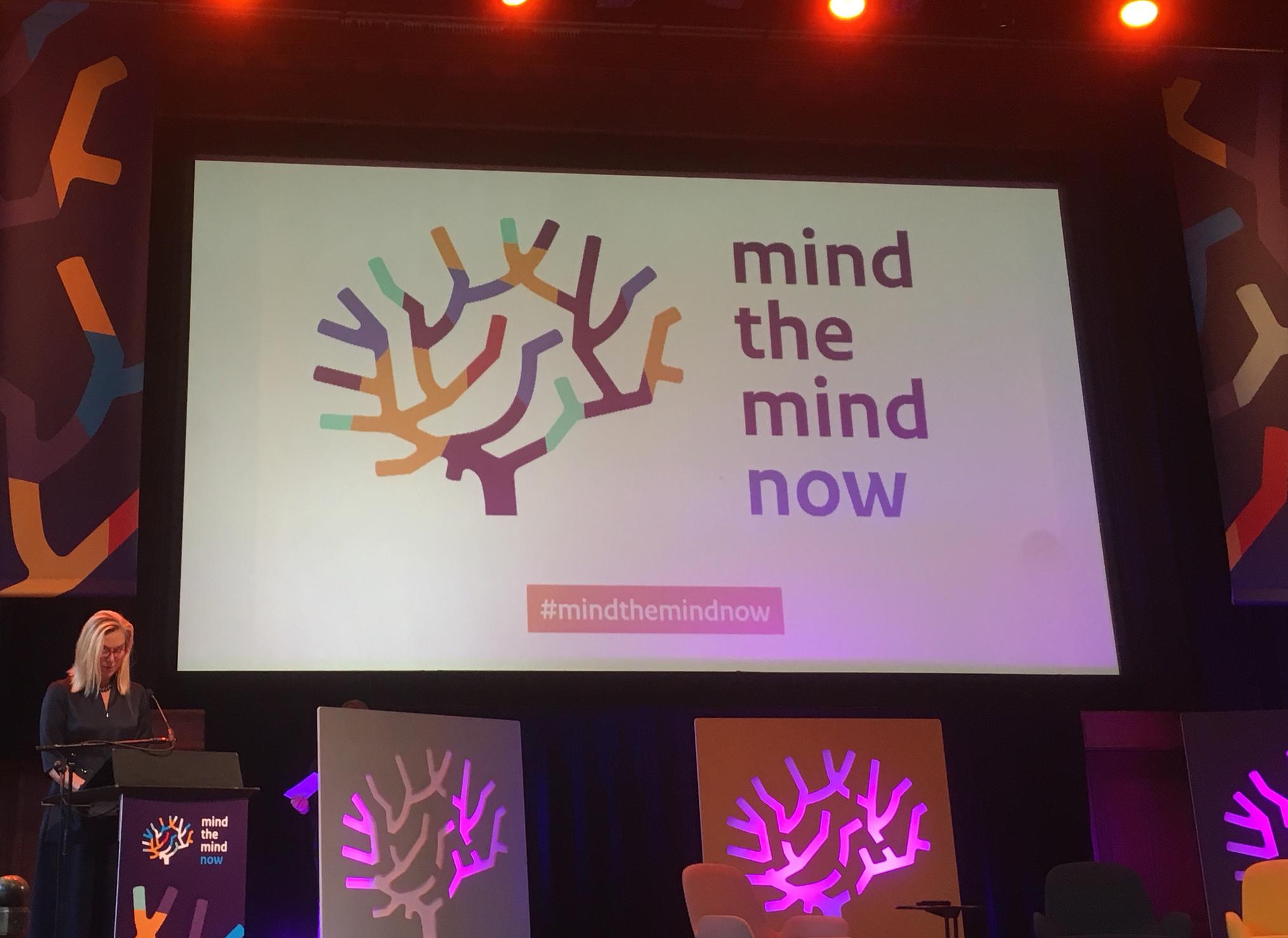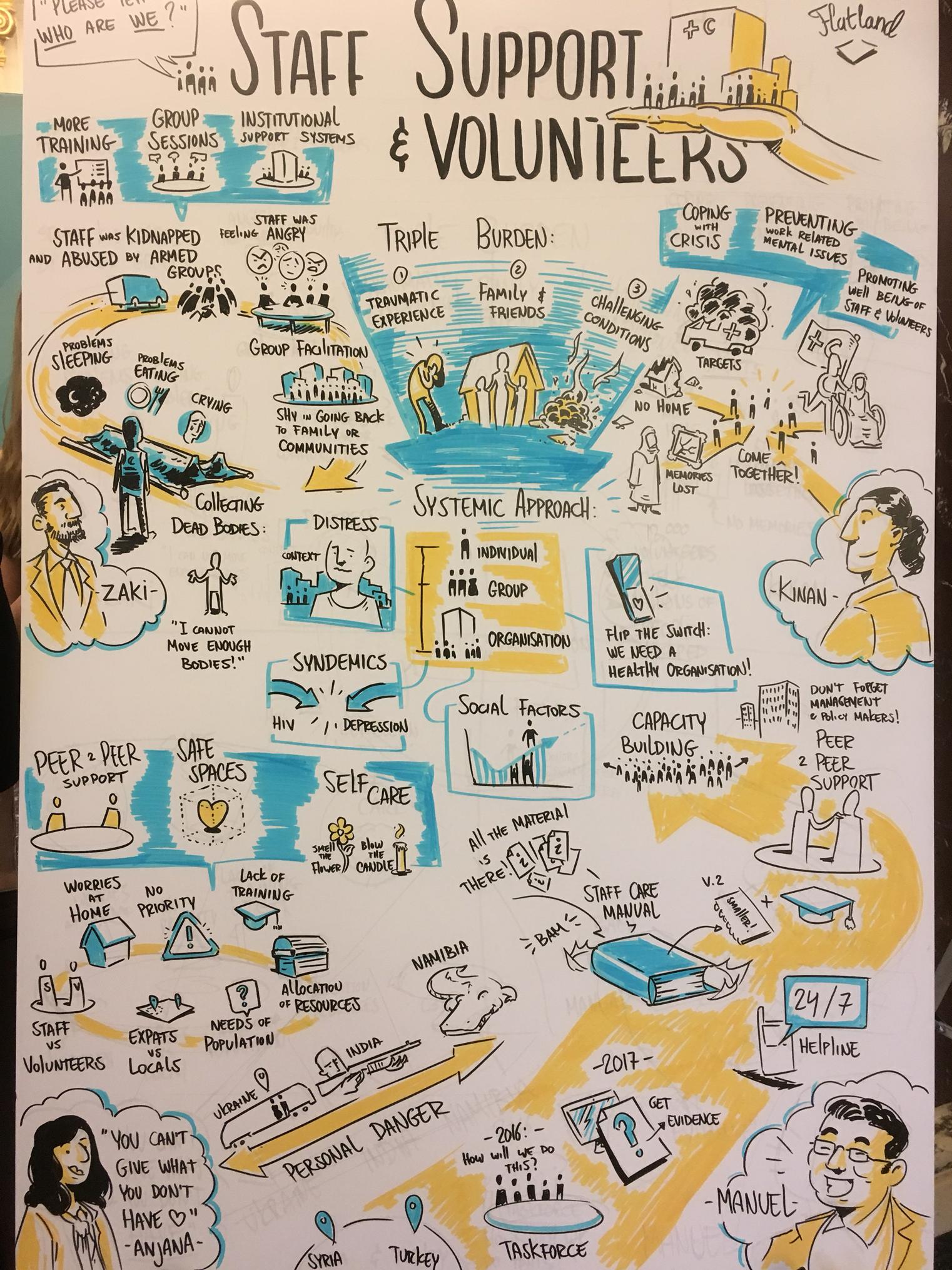Mind the Mind – A Turning Point for those Affected by Crises
The inaugural International Conference on Mental Health and Psychosocial Support (MHPSS) in Crisis Situations, held in Amsterdam, Netherlands, marks a turning point in support for those affected by crises around the world. To mark 2019’s World Mental Health Day, Jules reports on the CHS Alliance’s participation at this groundbreaking event for the sector.
More than 1 in 5 people who experience conflict or disaster develop a psychological condition.
That’s 20%.
From mild depression and anxiety to post-traumatic stress disorder, this is double the normal rate. Mental health and psychosocial illnesses can damage the very social networks people need to face problems together, rebuild communities and give life new purpose.
Yet as I heard at the Conference, of this 20% that need psychological care, only 2% have access to it.
Mental wellbeing is crucial for life in all its fullness, rebuilding, fighting poverty and reducing gender-based violence. Providing mental and psychosocial support makes emergency aid more effective.

Dutch Minister for Foreign Trade and Development Cooperation, Sigrid Kaag, opens the MHPSS conference.
To address this urgent global issue, on 7 and 8 October 2019, Sigrid Kaag, Dutch Minister for Foreign Trade and Development Cooperation, brought together MHPSS experts with those responsible for policy, planning and financing from government institutions and organisations in both affected and partner countries. And, most importantly, people with lived experience – people who, after everything they’ve been through, have found the strength to rebuild their lives and communities.
High-level keynote speakers included Sir Mark Lowcock, UN Under-Secretary-General for Humanitarian Affairs and Emergency Relief Coordinator, Dr. Tedros Adhanom Ghebreyesus, Director-General of the World Health Organisation, Peter Maurer, President of the International Committee of the Red Cross (ICRC), and Christos Stylianides, European Commissioner for Humanitarian Aid and Crisis Management (ECHO).
Enabling Participation
Over the two days, session after session reinforced that mental health and psychosocial support is essential to restore people’s day-to-day functioning during and after a crisis. These services help those affected by crises, supporting resilience after an emergency and rebuilding peaceful societies. Collectively, all participants stressed that mental health and psychosocial support needs to be given adequate attention in all sectors of humanitarian response for both individual and collective recovery.
The role of affected populations in the response was also highlighted throughout, including the closing declaration of the conference:
“Affected persons and communities should be enabled to participate in the development and delivery of services for their benefit.”
Serve well, be well
“We need to be mindful too of the mental wellbeing of aid workers, who are often the first responders in a crisis. Working for months and in some cases years in emergencies can be traumatic. The aid community has to ensure staff have access to mental health and psychosocial support when they need it.” Conference remarks from Under-Secretary-General for Humanitarian Affairs and Emergency Relief Coordinator, Mark Lowcock.
As the new CHS Alliance Head of Programmes and Partnerships, throughout the conference I not only advocated strongly for increased MHPSS for affected populations in crisis, but also for the mental health and well-being of humanitarian workers. To serve well, one has to be well.
I was glad to take part in discussions on the importance of an integrated approach to enhance staff care and support, starting with organisational culture, leadership and management. Peer to peer support, safe spaces to share, and self-care were also identified as crucial for good people management for those working in crisis situations.

Visualization from the conference session on responder wellbeing and mental health.
Accelerate the response
Closing the conference, ministers from 24 countries and high-level representatives from 10 international organisations shared their commitments and agreed mental health and psychosocial support must become a standard part of humanitarian response in crisis situations. Furthermore participants agreed to integrate and scale up mental health and psychosocial support in humanitarian responses and recognise the need for evidence and innovation to accelerate responses at all levels of support. These commitments are documented in the Mind the Mind Now Declaration.
Next Steps
We at the CHS Alliance welcome and celebrate the outcomes of the inaugural International Conference on Mental Health and Psychosocial Support in Crisis Situations. Urgent action to scale up sustainable and high quality MHPSS during and after disasters and conflicts is a need that cannot be ignored.
We also firmly believe that that affected persons and communities should be placed at the centre of decisions about services aimed at them. Crisis-affected communities know what’s best for themselves. As outlined in Commitment 4 of the Core Humanitarian Standard (CHS), quality and accountable humanitarian responses are based on communication, participation and feedback.
Learn more about our Accountability to Affected Populations work.
We also encourage the focus on good people management for staff well-being. We believe that to best serve those affected by crisis, humanitarian workers must be treated fairly and equitably, and also supported to do their jobs effectively. This includes their mental health and well-being. Commitment 8 of the CHS states that communities and people affected by crisis should receive the assistance they require from competent and well-managed staff and volunteers.
The CHS Alliance is proud to support a new initiative on Caring and Compassionate Organisations to promote the wellbeing of staff and volunteers across the sector.
Learn more about our People Management work.

